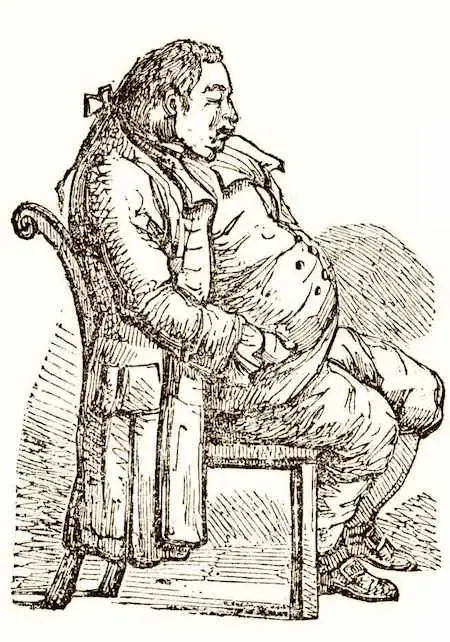Here and there; to this place and that place.
Hither and yon
What's the meaning of the phrase 'Hither and yon'?
What's the origin of the phrase 'Hither and yon'?
‘Hither and yon’ is an old English expression meaning ‘here and there’ or ‘to and fro’. It’s not exactly been widely used since the middle of the 20th century but it’s a shame to see old phrases die, so here’s my contribution to keeping it above ground.
There have been several alternative ways of expressing the phrase, depending on where and when the speaker lived. ‘Hither’ was first used in Old English in the 8th century, in the form ‘hyder’ or hider’, which later morphed into ‘hether’ in the 17th century, ‘hither’ in the mid 1700s and finally ‘here’ today.
Francis Grose was the first to record ‘hither’ in its current spelling, in A Provincial Glossary: with a collection of local proverbs, and popular superstitions, 1787, citing it to be colloquial northern English:
Hither and yon, here and there, backwards and forwards.
Grose was an indefatigable lexicographer (who, judging by the picture of him held in the Library of Ireland, made every effort to live up to his surname) and his glossary and other works, especially the Classical Dictionary of the Vulgar Tongue are a boon to etymologists. He was amongst the first to record numerous expressions that are now part of our language, including:
Down in the dumps
Before you could say Jack Robinson
Old hat
and many others (see link below for more).
The ‘hither and yon’ variant that Grose listed moves us on to the second word in the phrase – ‘yon or ‘thither’. There have been several variants of ‘thither’ over the years – ‘dider’, ‘thyder’, ‘thether’ and now ‘there’.
‘Yon’, which is of course a contraction of ‘yonder’, has a life all of its own. I previously thought that ‘over yonder’ was an idiom used by yokels when referring to things that were an indeterminate distance away (and those of you who listen to the BBC’s soap The Archers will have heard “over Hollerton way” being used that way). However, ‘yonder’ isn’t vague at all, it has a specific meaning, which is ‘some distance away, but within sight’. In this it appears to be the landlubber’s version of the nautical ‘offing‘, i.e. the part of the sea that is within sight from the land.
Here’s how those various words have been put together over time to mean ‘here and there’ or ‘to and fro’:
– Circa 725AD – ‘Hider and dider’ – listed in the glossary of manuscripts of Corpus Christi College, Cambridge.
– 1412 – ‘Here and yonder’ – John Lydgate’s translation of the History of Troy.
– 1413 – ‘Hyder and thyder’ – recorded in the medieval manuscript The Pylgremage of the Sowle.
– 1626 – ‘Hether and thether’ – in George Sandys’ translation of Ovid’s Metamorphosis.
– 1787 – ‘Hither and yon’ – Francis Grose’s Glossary.
– 1837 – ‘Hithering and thithering’ – Jane Carlyle, in a letter to her husband Thomas. This may seem to be the first example of ‘hither and thither’ in print but it appears that it was there being used to mean ‘going to and fro in a confused manner’ i.e. ‘dithering’. Thomas Carlyle also used the expression later in his own writing, but it wasn’t widely adopted with that meaning.
– 1871 – ‘Hither and thither’ – Richard Hutton, in Theological and Literary Essays:
“Of what nature can a Power be that moves us hither and thither through the ordinary courses of our lives?”
The above timeline isn’t a progress towards ‘here and there’, which has existed in parallel for centuries, but it does plot the course of the alternatives to it that I hope haven’t yet quite reached the end of the road.
See other phrases first recorded by Captain Francis Grose.
See other reduplicated phrases.
The history of “Hither and yon” in printed materials
Trend of hither and yon in printed material over time
Browse more Phrases
About the Author

Phrases & Meanings
A-Z
A B C D E F G H I J K L M N O P Q R S T UV W XYZ
Categories
American Animals Australian Bible Body Colour Conflict Death Devil Dogs Emotions Euphemism Family Fashion Food French Horses ‘Jack’ Luck Money Military Music Names Nature Nautical Numbers Politics Religion Shakespeare Stupidity Entertainment Weather Women Work
How did we do?
Have you spotted something that needs updated on this page? We review all feedback we receive to ensure that we provide the most accurate and up to date information on phrases.
